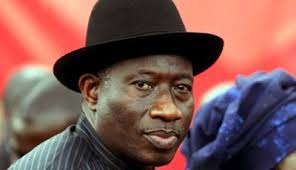
May 19, 2015
/
By:
ofcounsel_admin/
- 0 Comments
/
- Law News
President Goodluck Jonathan has signed the 2015 Appropriation Bill into law, THE PUNCH has authoritatively learnt.
Investigation by our correspondent on Monday revealed that Jonathan decided to sign the budget into law a couple of days back without fanfare.
As of the time of filing this report, it could not be confirmed why the President had kept the development away from public knowledge.
The Senate had passed the 2015 budget on April 28, following the passage of the same bill by the House of Representatives on April 23, with an expenditure outlay of N4.493tn, up from the N4.425tn proposed by the Executive.
There have been concerns among Nigerians on whether Jonathan will sign the budget before May 29 when he will formally hand over to Muhammadu Buhari or he will leave it behind for the incoming administration which is believed may still prepare a supplementary budget.
But a Presidency source told our correspondent that the President signed the budget about two weeks ago immediately after the document passed by the National Assembly was transmitted to him.
The source, however, said he did not know why the President chose to sign the document without making it public.
When contacted, the Special Adviser to the President on Media and Publicity, Dr. Reuben Abati, also confirmed that Jonathan had signed the budget.
Although he also did not give any reason why the signing was not made public, Abati said the President signed the document “some weeks back.”
The Senate, in passing the budget, slightly reduced the N2.607,601, 000,300 proposed by the Executive to N2.607,132,491,708 as recurrent expenditure and simultaneously scaled down the capital expenditure from N642,848,999,699 estimated in the proposal to N556,995,465,449.
The Chairman, Joint Senate Committee on Appropriation and Finance, Mohammed Maccido, explained that the details of the figure approved by the Senate in the document were not different from the version passed by the House of Representatives.
He added that the budget would be driven by $53 oil benchmark, an exchange rate of N190 to one US dollar; 2.2782m per barrel crude oil production per day; and a deficit gross domestic product of -1.12 per cent.
The budget also put fiscal deficit at N1.075tn; N953bn for debt service; N375.6bn as statutory transfers.
Education takes the lion’s share of the budget with N392.3bn; followed by the military which gets N338.7bn while police commands and formations will receive N303.8bn.
In the same vein, N237bn was voted for the health sector; N153bn for the Ministry of Interior while N25.1bn was budgeted for the Ministry of Works.
Jonathan and successive heads of government had been signing the fiscal document in the full glare of media representatives and some members of the public, including the leadership of the National Assembly except for the period when the late President Umaru Yar’Adua was sick and members of his kitchen cabinet claimed that he signed the budget on his sick bed abroad.
The situation however changed in 2013 when a bad blood between the executive and the legislature over their differences on the budget forced Jonathan to sign the document in secret.
That year, Abati only issued a statement announcing that Jonathan had signed the bill into law.
Also last year, Jonathan signed the 2014 budget in secret and handed it over to the Minister of Finance, Dr. Ngozi Okonjo-Iweala, and the Director, Budget Office, Dr. Bright Okogu, for implementation, two days after he signed it.
Abati had explained then that Okonjo-Iweala was not around when the President signed the budget, hence the need to formally it hand over to her.
“The President actually signed the 2014 Budget two days ago. But you know that the Minister of Finance was not in town. So he needed to hand over to her and the Director Budget for onward transmission. That was what he did today. The ministry will be addressing the press in the next one hour,” Abati had said.
Click here to read from source.
You must be logged in to post a comment.

